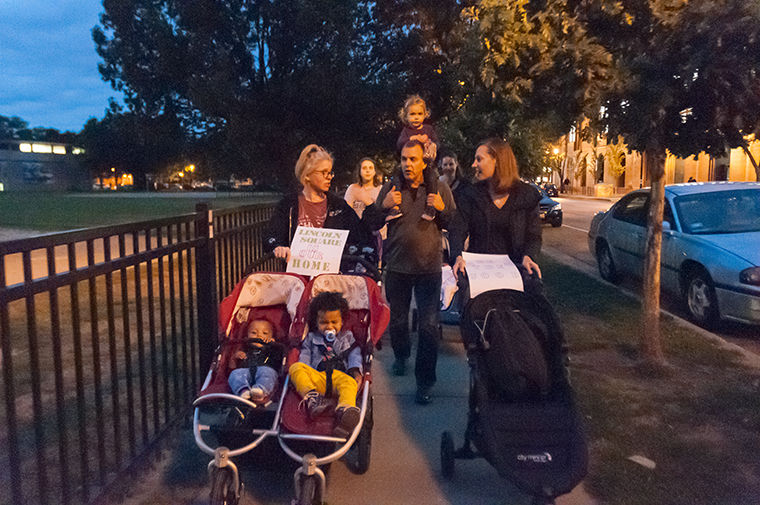Sexual assaults on North Side raise safety questions
October 9, 2017
Stay-at-home mother Jocelyn Costlow was walking her six-month-old son in a stroller in Lincoln Square Aug. 14 when she was allegedly sexually assaulted by an unknown man.
Local women have reported a string of similar assaults throughout September in the North Side neighborhoods of the 19th, 20th and 24th police districts. In response, Costlow organized an Oct. 5 march to bring attention to the crimes and lack of education about what to do when confronted with sexual assault.
“I felt like my [police] report went unnoticed, and I wish it would’ve been able to help so those women would not have had to go through the same thing,” Costlow said. “I refuse to be a victim or let something negative have that much control or power over me … so I wanted to turn it into a positive conversation. If my report didn’t stop this, maybe doing something to create more awareness will.”
Costlow said she felt women were being targeted because they are vulnerable when walking alone, slowly with their children during midday.
According to the latest crime statistics from the Chicago Police Department’s data portal, there have been 12 reported sexual assaults in the 19th District over the last 28 days, a 47 percent increase from last year.
“If all moms in Lincoln Square are afraid to push their kids in strollers and afraid of bikes going by, that’s a problem,” Costlow said. “I don’t leave the house as often and when I do, I drive. Being scared and not feeling confident to leave my house is not minor.”
Costlow said she wants to see the aldermen or police offices create an FAQ sheet about sexual assault and distribute it throughout the neighborhoods.
The first community alert on sexual assault was issued Sept. 17 by the District 19 Chicago Alternative Policing Strategy Office. The alert was updated Sept. 27 to note that more recently “the offender, while riding on a bicycle, inappropriately touched victims as he [rode] past.”
Amanda Urteaga of Albany Park and Julie Wigstone of Ravenswood attended the Oct. 5 march. Both are mothers who said these incidents inflict psychological trauma and should be taken more seriously as assault.
“Most women have gone through this at some point in their life,” Urteaga said. “Saying it is inappropriate touching is just an easy way to dismiss it because it is something that they don’t want to deal with. I understand law enforcement has a lot to deal with, but shouldn’t we feel safe walking around our communities?”
Jim Poole, Ald. Ameya Pawar’s (47th Ward) chief of staff, said there is citywide confusion about whether to call non-emergency 311 or 911 when crimes like these happen.
“We sent out our weekly e-newsletter to about 14,000 email addresses in the ward,” Poole said. “There was also a CAPS meeting to talk about it. For crimes like this, people need to call 911. Eyes on the street are critical, and we want people to be aware of it and keep their eyes out for people who meet the description.”
Megan Blomquist, director of education and training at Rape Victim Advocates in Chicago, said it is important to hold offenders accountable for their crimes.
“We need to take it seriously, not minimize the situation,” she said. “[Holding offenders accountable] can keep more incidents from happening. Once a sexual assault happened but it doesn’t go through the legal system, [allowing for] no repercussions, or the community doesn’t take it seriously—it becomes more allowable.”
According to a 2015 National Crime Victimization Survey, only 344 out of every 1,000 sexual assaults are reported to police.
Costlow said after she led the walk, a “disturbing amount” of individuals in the North Side neighborhoods shared their stories of similar assaults.
“Even when it happened to me, my first thought was that I shouldn’t have been wearing a dress,” Costlow said. “I absolutely have every right to wear a dress on an August day in Chicago—I think a lot of women have those thoughts and that has to do with society and how we live.”
Blomquist said assault victims do not control the circumstances of their attack, so what they are wearing at the time of the incident is irrelevant.
“Thinking about what people could’ve, would’ve or should’ve done differently is a very natural response to incidents of violence and incidents that are outside of our control,” Blomquist said. “As humans, we want to control the situation and feel like there is something we could’ve done to prevent it or stop it.








